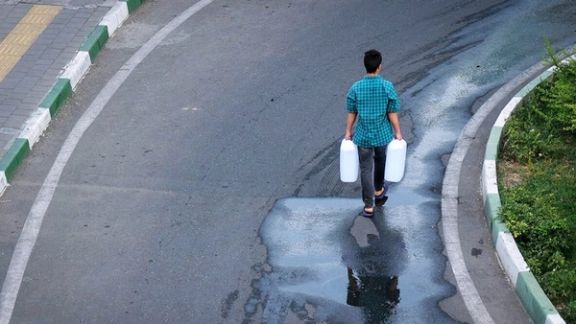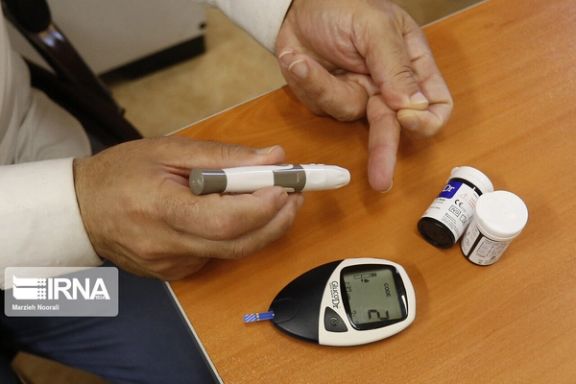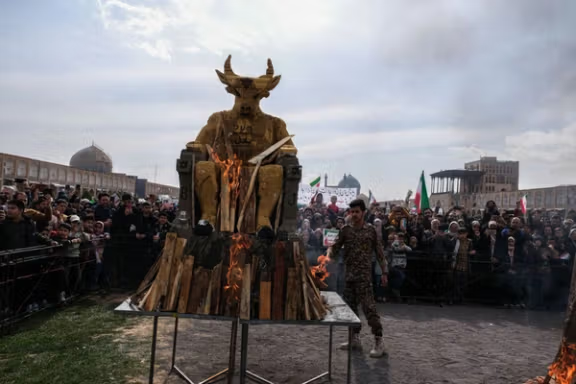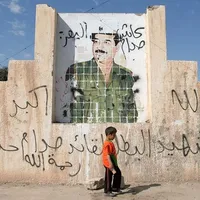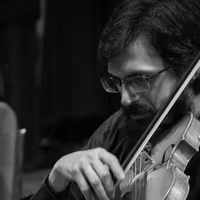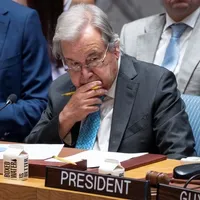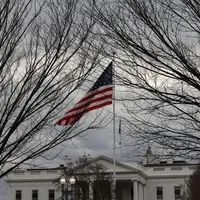For more than forty some years, the Islamic Republic has tried not only to control power but to monopolize conversation itself, deciding who speaks, what is heard, and which "alternative truths" are permitted to exist.
Dialogue frightens it. So does ordinary patriotism, the kind that arises when people speak in their own words about their country.
On the line, a teacher from Kermanshah tells me that students are never taught the courage to ask critical questions. A Toronto caller describes a generation that has learned to survive by lying. A woman in Tehran confesses that she’s waiting for a miracle because she can no longer imagine change.
These voices are not fragments; they are coordinates on the map of a national psyche. Talking in Iran can be dangerous. Silence, in another way, is deadly too. When a society stops speaking to itself, it begins to turn against itself. Authoritarians thrive on that silence.
The live show I host is an attempt—improvised, fragile, sometimes chaotic, to reverse that damage. We bring Iranians together in real time, from Tehran to Los Angeles. We follow three simple rules: everyone gets heard, no judgment, and keep it suitable for all ages.
Our callers often contradict themselves. That’s what makes it real. Dialogue isn’t the theater of agreement; it’s the discipline of listening.
Across the static and emotion, three truths keep repeating.
First: the Islamic Republic never stops talking, but it doesn’t listen. It sermonizes, threatens, censors and congratulates itself. This isn’t strength, it’s fear.
Second: society has begun to mirror that refusal. Iranians interrupt before they understand, argue before they think and treat disagreement as contamination. The Islamic Republic feeds that instinct.
Third: the way out of this loop isn’t heroic, it’s procedural. Ask a real question. Wait for real answers. Let facts, not pride, decide who’s right. simple but challenging.
'Look in the mirror'
Iran today is divided by many wars: between people and government, truth and propaganda, hope and exhaustion. Yet, amid that division, I still hear the quiet persistence of life.
A caller from Tehran wants to talk about water: the taps shut off at midnight, and families fill bottles before the cutoff. That, too, is politics, the right to live without fear of thirst.
Another caller, from Shiraz, demands leadership. “Death with honor is better than life with humiliation,” he says. Moments later, a woman from Tehran replies, “Stop looking for a savior. Look in the mirror.”
These exchanges are the substance of what I call "national dialogue". Not a slogan or a policy, just the collective decision to speak before it’s too late.
Tunisia did it and saved itself from civil war. Nelson Mandela in South Africa did it and dismantled apartheid. Yemen pretended to do it and collapsed. For Iran, dialogue is not an ideal; it’s a means of survival.
I am not neutral about the Islamic Republic forcing people to whisper. But I am devout about the method that can outlast it. Patriotism, to me, is standing by the truth even when it’s spoken by someone you dislike.
Dialogue is resistance; listening is courage.
Some nights, when the last call ends, I sit in the quiet studio and hear only the click of the line going dead. But I know the sound that came before it—a mother’s whisper, a teacher’s question, a citizen’s confession—is proof of something still breathing inside the country.
After years of state monologue, the most subversive sound in Iran is a nation talking to itself. Something is stirring beneath the surface, and I can hear it. I hear it every night on the program. Live, raw, and authentic.
I am hopeful.





